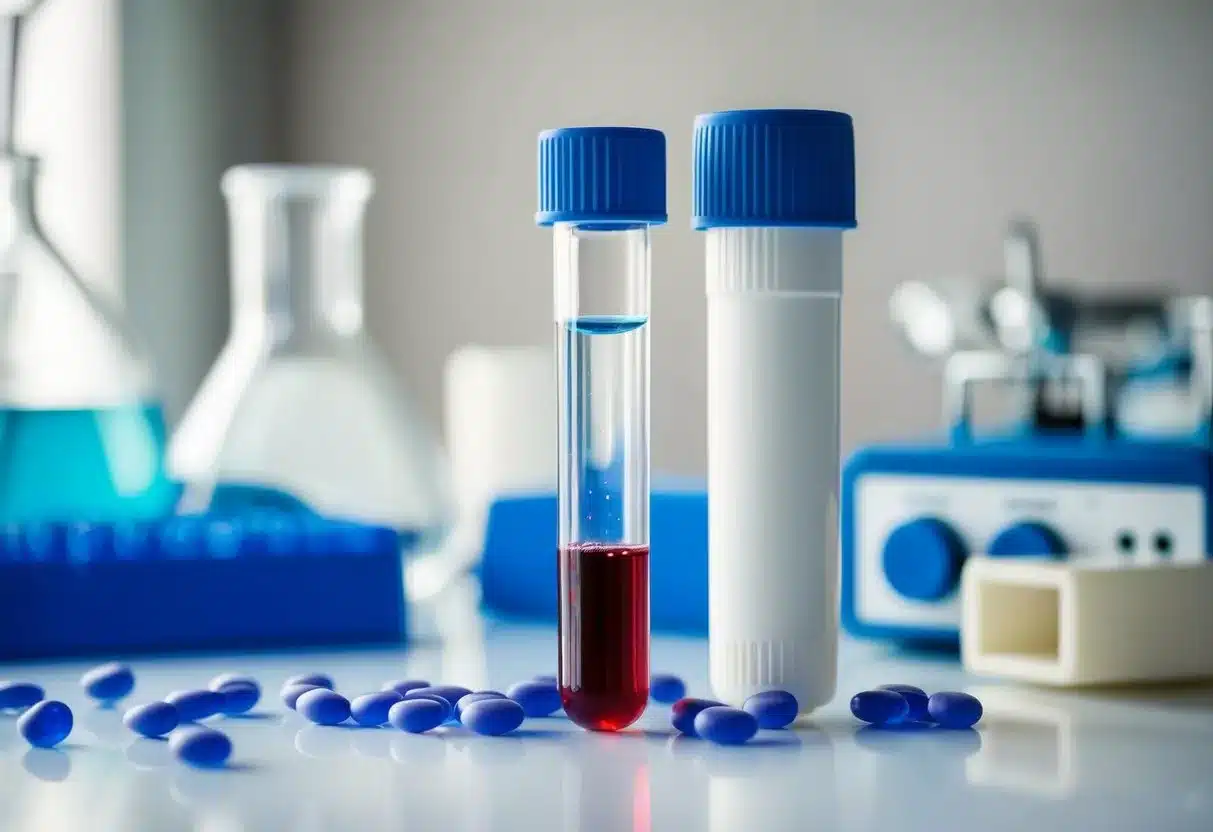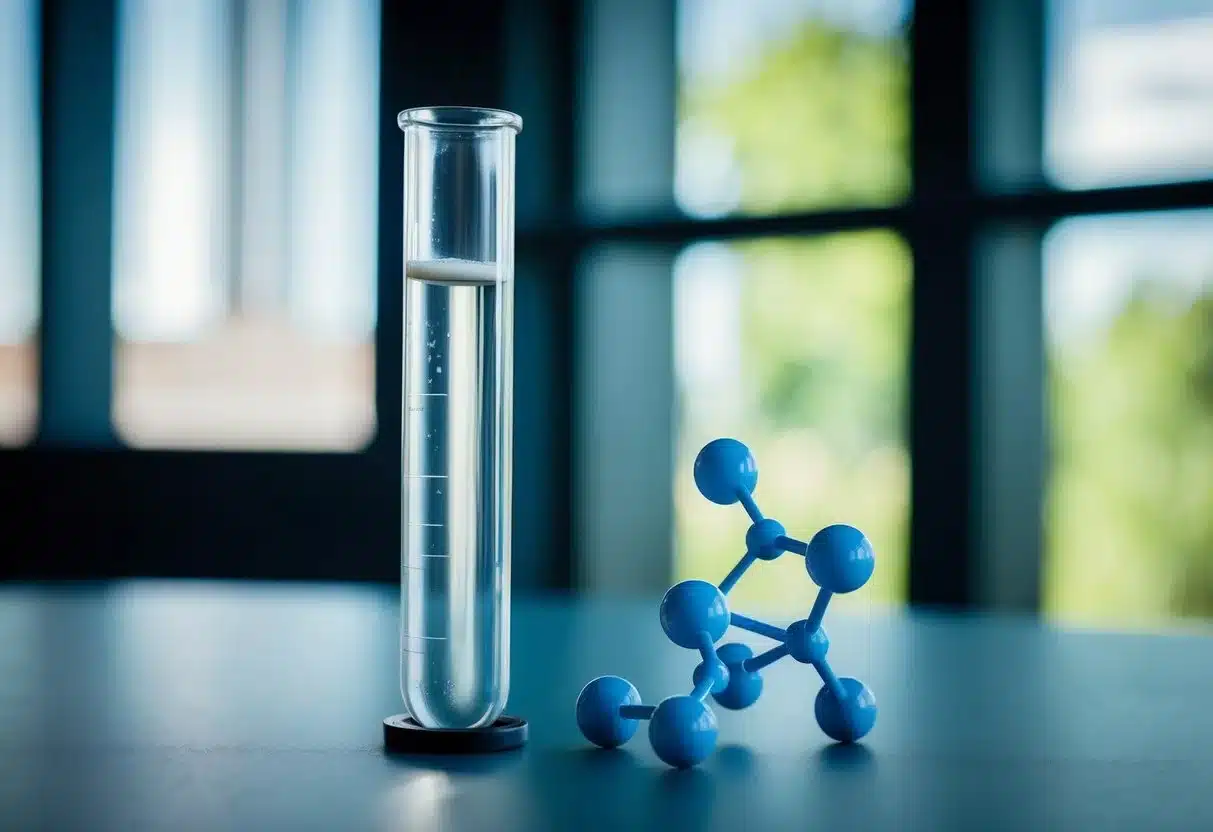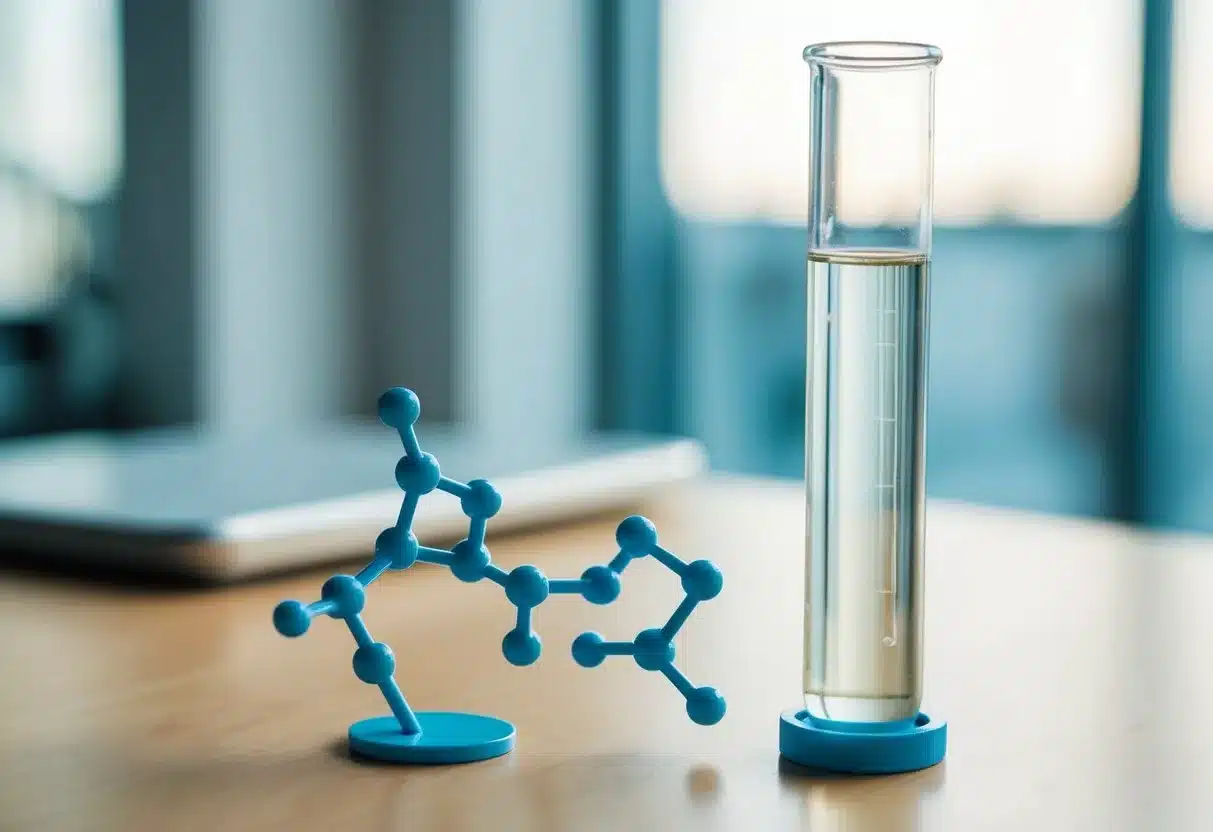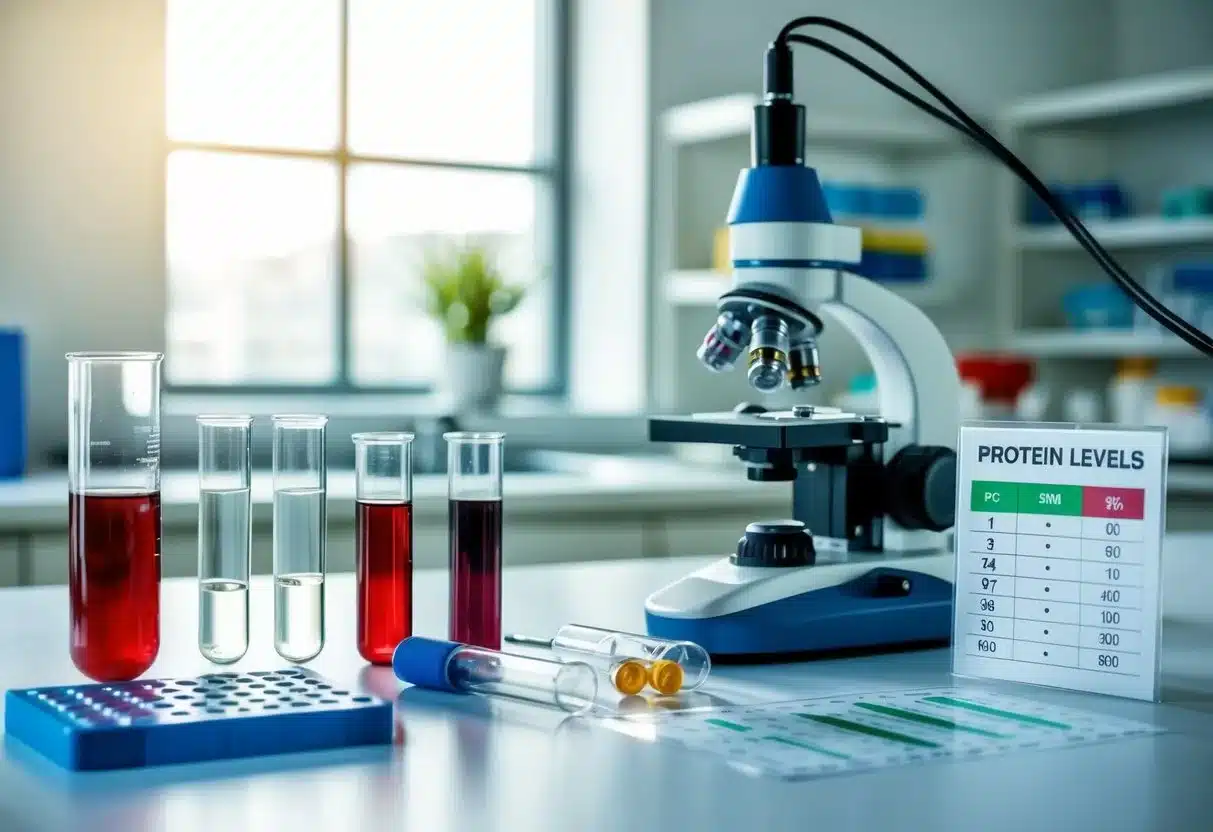Low protein levels in your blood can be a sign of various health issues. A blood test can measure the amount of protein in your body. If your total protein is low, it may indicate conditions like liver disease, kidney problems, or malnutrition.

Low protein can lead to weakness, fatigue, and fluid buildup in your body. Your body needs protein to build and repair tissues, make enzymes and hormones, and support your immune system. When protein levels drop, it can affect many of your body’s functions.
A blood protein test can check your albumin and globulin levels. Albumin makes up most of your blood protein and helps keep fluid from leaking out of blood vessels. If you have low protein, your doctor may recommend dietary changes or further tests to find the cause.
Key Takeaways
- Low blood protein can signal health issues and affect body functions
- A blood test measures protein levels and helps identify potential problems
- Treatment focuses on addressing the underlying cause and may include dietary changes
Understanding Protein in Blood

Proteins play crucial roles in the body and can be measured through blood tests. These tests provide important information about a person’s health status and can help identify various medical conditions.
Role and Importance of Protein
Proteins are essential for many bodily functions. They help build and repair tissues, fight infections, and transport substances throughout the body.
Proteins also maintain fluid balance and act as enzymes, hormones, and antibodies. Without enough protein, the body can’t function properly.
Low protein levels may lead to weakness, fatigue, and fluid buildup[1] in tissues. This can cause swelling in the legs, face, and other areas.
Types of Blood Proteins
Two main types of proteins are found in the blood:
- Albumin: This is the most abundant protein in blood. It helps:
- Maintain fluid balance
- Transport hormones and medicines
- Provide nutrients to tissues
- Globulins: These proteins have several important functions:
- Form antibodies to fight infections
- Aid in blood clotting
- Transport some vitamins and minerals
The balance between albumin and globulins is important for overall health.
Blood Protein Tests
Blood tests can measure protein levels in the body. The most common is the total protein test. This test measures the combined amount of albumin and globulins in the blood.
Normal total protein levels typically range from 6.0 to 8.3 g/dL. Values outside this range may indicate health issues.
A doctor might order more specific tests to check individual protein types:
- Albumin test
- Globulin test
- Albumin/globulin (A/G) ratio
These tests help diagnose conditions like liver disease, kidney problems, or nutritional deficiencies.
Causes of Low Protein Levels

Low protein levels in the blood can stem from various health issues. These range from dietary factors to serious medical conditions affecting key organs and body systems.
Malnutrition and Diet
Poor nutrition is a common cause of low blood protein. Not eating enough protein-rich foods can lead to hypoproteinemia. This is especially true for people on very restrictive diets or those with eating disorders.
Older adults and people with chronic illnesses may struggle to eat enough protein. Some vegetarian and vegan diets might also lack adequate protein if not well-planned.
Protein-rich foods include:
- Lean meats
- Fish
- Eggs
- Dairy products
- Beans and lentils
- Nuts and seeds
Kidney Disease
Kidneys play a key role in protein balance. When they don’t work well, protein can leak into urine. This condition is called proteinuria.
Chronic kidney disease often leads to low protein levels. As kidney function declines, it becomes harder to maintain proper protein balance in the blood.
Nephrotic syndrome is another kidney issue that causes protein loss. In this condition, large amounts of protein pass into the urine.
Liver Disease
The liver makes many important proteins, including albumin. Liver problems can reduce protein production, leading to low blood levels.
Common liver issues that affect protein levels include:
- Cirrhosis
- Hepatitis
- Fatty liver disease
Alcohol abuse often damages the liver, which can impact protein production. As liver disease progresses, protein levels may continue to drop.
Digestive Tract Disorders
Some digestive conditions interfere with protein absorption. This can lead to low blood protein even if a person eats enough protein.
Celiac disease is one such condition. It damages the small intestine, making it hard to absorb nutrients, including protein.
Inflammatory bowel diseases like Crohn’s disease can also cause protein loss. These conditions can lead to protein-losing enteropathy[2], where protein leaks from the gut.
Other digestive issues that may lower protein levels:
- Intestinal infections
- Chronic diarrhea
- Pancreatic insufficiency
Other Health Conditions
Several other health problems can cause low protein levels in the blood.
Cancer can lower protein levels in different ways. Some tumors use up a lot of protein. Cancer treatments like chemotherapy can also affect protein levels.
Severe burns lead to protein loss through damaged skin. This can quickly deplete blood protein levels.
Some autoimmune diseases attack organs involved in protein balance. This can indirectly lead to low protein levels.
Severe infections or prolonged illness can use up protein faster than the body can replace it. This is often seen in critically ill patients.
Symptoms of Low Protein Levels

Low protein levels in the blood can lead to various symptoms. These signs often start subtly but can worsen over time if not addressed.
Physical Signs
Low protein levels may cause visible changes in the body. People might notice swelling in their hands, feet, or abdomen. This swelling, called edema, happens when fluids build up in tissues.
Skin can become dry, flaky, or pale. Hair may thin or fall out more easily. Nails might become brittle or develop ridges.
Muscle loss is another common sign. Arms and legs may look thinner. People often feel weak and tire quickly, even from simple tasks.
Weight loss can occur without trying to lose weight. This happens as the body breaks down muscle for energy.
Long-Term Health Effects
Ongoing low protein levels can lead to serious health issues. The immune system weakens, making it harder to fight off infections.
Wounds heal more slowly. Cuts, scrapes, or surgical incisions may take longer to close up.
Bone health can suffer. Low protein can lead to weaker bones and a higher risk of fractures.
Heart function may decline. The heart muscle can weaken, leading to poor circulation.
Brain fog and mood changes can occur. People might have trouble concentrating or feel irritable.
Hormone imbalances can develop, affecting many body functions. This may cause issues with growth, reproduction, and metabolism.
Diet and Nutrition for Protein Levels

Eating the right foods can help boost low protein levels in the blood. A balanced diet with enough protein is key for good health.
Sources of Dietary Protein
Lean meats, fish, and eggs[3] are great sources of protein. They contain all the essential amino acids the body needs.
Plant-based options like beans, lentils, and nuts also provide protein. Tofu and tempeh are good choices for vegans and vegetarians.
Greek yogurt packs a protein punch and is easy to add to meals. Quinoa is a plant that offers complete protein, rare for non-animal sources.
Balancing Protein Intake
Adults should aim for 0.8 grams of protein per kilogram of body weight daily. This amount may increase for athletes or older adults.
Spreading protein intake throughout the day is better than eating it all at once. Each meal should include a protein source.
It’s important to pair proteins with other nutrients. Whole grains, fruits, and vegetables create a balanced plate.
Nutrient Deficiencies and Protein
Low protein intake can lead to other nutrient deficiencies. Protein helps the body absorb iron and calcium.
Vitamin B12 is found mainly in animal proteins. Vegans may need supplements to avoid deficiency.
Zinc and selenium are minerals often found in protein-rich foods. A varied diet ensures getting all necessary nutrients.
Eating enough protein supports the immune system. It helps the body make antibodies to fight illness.
Treatment and Management
Low total protein in blood requires a multi-faceted approach. Treatment focuses on addressing the underlying cause and improving protein levels through medical care, lifestyle changes, and proper nutrition.
Medical Interventions
Albumin infusion[4] is a common treatment for severe hypoalbuminemia. Doctors administer this intravenously to quickly raise albumin levels in the blood. In cases of kidney problems, dialysis may be necessary to remove excess fluid and waste products.
For liver conditions like cirrhosis, medication and other therapies aim to slow disease progression and improve liver function. Heart failure treatment often includes drugs to manage symptoms and reduce fluid buildup.
Vitamin deficiencies are corrected through supplements or dietary changes. Doctors may prescribe specific vitamins based on blood test results.
Lifestyle Modifications
Regular exercise helps maintain muscle mass and can improve sarcopenia, a condition of muscle wasting. Strength training is especially beneficial for building and preserving muscle protein.
Quitting smoking and limiting alcohol intake are crucial for liver and overall health. These changes can help prevent further damage and support the body’s protein production.
Proper sleep and stress management also play a role in protein synthesis and overall health. Patients are often advised to develop consistent sleep routines and practice relaxation techniques.
Nutritional Support
A protein-rich diet is key for managing low blood protein. Foods high in protein include:
- Lean meats
- Fish
- Eggs
- Dairy products
- Legumes
- Nuts and seeds
For those with anorexia nervosa[5], a carefully planned meal schedule and nutritional counseling are essential. In severe cases, tube feeding may be necessary to ensure adequate nutrient intake.
Patients with liver or kidney issues may need to adjust their protein intake based on their condition. A dietitian can help create a balanced meal plan that meets individual needs.
Complications Associated with Low Protein Levels

Low protein levels in the blood can lead to serious health issues. These problems can affect multiple body systems and organs, potentially causing long-term damage if not addressed.
Effects on Immune System
Low protein levels can weaken the immune system[3], making a person more vulnerable to infections. The body needs protein to produce antibodies and other immune cells. Without enough protein, these defenses can’t function properly.
People with low protein may:
• Get sick more often
• Take longer to recover from illnesses
• Have more severe symptoms when ill
Chronic low protein can increase the risk of opportunistic infections. These are infections that normally don’t affect healthy people but can be dangerous for those with weakened immunity.
Risks of Organ Failure
Protein is crucial for organ health and function. Low levels can lead to organ damage or failure, especially in vital organs like the kidneys and liver.
Kidney damage: Low protein can cause fluid buildup in tissues, straining the kidneys.
Liver disorders: The liver needs protein to remove toxins from the body. Without enough protein, toxins can build up, causing liver damage.
Heart failure: Swelling from fluid accumulation can put extra stress on the heart, potentially leading to heart failure.
Impact on Overall Health
Low protein levels can affect a person’s overall health and quality of life in various ways.
Physical effects:
• Muscle wasting and weakness
• Slow wound healing
• Brittle hair and nails
Mental effects:
• Fatigue and low energy
• Difficulty concentrating
• Mood changes
In severe cases, protein deficiency can lead to a condition called kwashiorkor. This is most common in areas with widespread malnutrition. Symptoms include:
• Swelling (edema)
• Enlarged belly
• Skin and hair changes
• Stunted growth in children
Low protein levels can increase mortality risk, especially in hospitalized patients or those with chronic illnesses. Proper nutrition and medical care are essential to prevent these complications.
Prevention Strategies

Keeping your blood protein levels in check is crucial for overall health. By making smart food choices and tracking your intake, you can avoid low protein issues.
Dietary Considerations
Eating a balanced diet rich in protein is key. Include lean meats, fish, eggs, and dairy in your meals. For vegetarians, beans, lentils, nuts, and seeds are great options.
Whole grains like quinoa and buckwheat also provide protein. Aim to have protein at every meal. This helps maintain steady levels throughout the day.
Don’t forget about protein quality. Animal sources offer complete proteins with all essential amino acids. Plant sources may need combining for a complete profile.
Spread protein intake evenly across meals. This is better than having one big protein-heavy meal.
Monitoring Protein Intake
Keep track of your daily protein consumption. Use a food diary or app to log meals. Aim for about 0.8 grams of protein per kilogram of body weight daily.
Regular blood tests can check protein levels. This helps catch any drops early. Talk to your doctor about how often to test.
Watch for signs of low protein like weakness or swelling. These can be early warnings.
If you have ongoing health issues, you may need more frequent checks. Some conditions can affect how your body uses protein.
Consider working with a dietitian. They can help create a protein-rich meal plan tailored to your needs.
Frequently Asked Questions
Low blood protein levels can have various health impacts and causes. Understanding the symptoms, risks, and ways to increase protein is important. Proper testing helps diagnose and address this condition.
What are the potential health implications of having low protein levels in the blood?
Low protein in the blood can lead to several health issues. Swelling in legs, face, and other areas may occur. This is because proteins help keep fluid in blood vessels.
Muscle loss is another concern. Proteins are essential for maintaining muscle mass. Without enough, the body may break down muscle tissue.
How can one increase protein levels in the blood?
Eating more protein-rich foods is a key way to boost blood protein levels. Good sources include lean meats, fish, eggs, and dairy products.
Plant-based options like beans, lentils, and nuts also provide protein. In some cases, a doctor may recommend protein supplements.
What symptoms might indicate a deficiency of protein in the bloodstream?
Hair loss can be a sign of protein deficiency. Proteins are crucial for hair growth and health.
Weakness and fatigue are common symptoms. This is due to the loss of muscle mass and decreased energy production.
Slow wound healing may also occur. Proteins play a vital role in tissue repair and regeneration.
Are certain individuals more at risk for low blood protein levels?
Older adults may be at higher risk due to decreased protein absorption. People with digestive disorders can also have trouble getting enough protein.
Those with liver or kidney disease may struggle to process proteins properly. Vegetarians and vegans need to ensure they get enough complete proteins.
Can low blood protein levels be an indicator of underlying medical conditions?
Yes, low protein levels can signal various health issues. Liver disease often leads to decreased protein production.
Kidney problems can cause protein loss through urine. Malnutrition or malabsorption disorders may also result in low blood protein.
What diagnostic tests are used to determine protein levels in the blood?
A total protein, albumin, and albumin/globulin ratio test is commonly used. This blood test measures different types of proteins.
Doctors may also order a comprehensive metabolic panel. This test checks protein levels along with other important blood components.
References
- Hypoproteinemia: Definition, Causes, and Symptoms. https://www.healthline.com/health/hypoproteinemia Accessed October 28, 2025
- Can Protein Raise Blood Sugar?. https://www.livestrong.com/article/250727-reasons-for-low-protein-levels-in-blood/ Accessed October 28, 2025
- Are you getting enough protein? Here's what happens if you don't. https://www.uclahealth.org/news/article/are-you-getting-enough-protein-heres-what-happens-if-you-dont Accessed October 28, 2025
- Hypoalbuminemia: Causes, Symptoms, Treatment & Outlook. https://my.clevelandclinic.org/health/diseases/22529-hypoalbuminemia Accessed October 28, 2025
- What is Hypoproteinemia and What to Do About it – Amy Myers MD. https://www.amymyersmd.com/article/what-is-hypoproteinemia Accessed October 28, 2025
